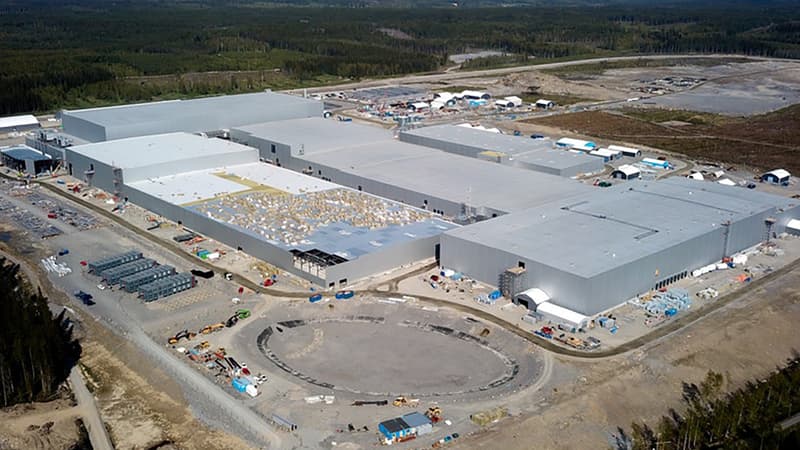Britishvolt, which is building a £3.8bn electric vehicle battery cell mega-factory project in north-east England, is on the brink of default, according to British media.
The company could apply for placement as soon as Monday, running out of money to finance the construction of its factory and after failing to raise additional funds, with 300 jobs at stake.
Britishvolt was trying to raise £200m, or even sell the company outright; the company would have been in advanced talks with several potential buyers, including India’s Tata Motors, specifies the Financial Times.
The company had in August acknowledged difficulties related to “market conditions, including rampant inflation and rising interest rates”, also citing “geopolitical uncertainties” and “the global energy crisis”, delaying the start date of production, initially planned at the end of 2023, to 2025.
Future financing of £1.7 billion
Britishvolt has so far raised £200m and in January entered into a long-term partnership with logistics construction specialist Tritax and UK asset management giant Abrn, with £1.7bn funding.
The project has also received support from the government of former Prime Minister Boris Johnson, with local press funding estimated at £100m, which has yet to be disbursed. Britishvolt has also signed memorandums of understanding for collaboration with British car manufacturers Aston Martin and Lotus.
The company is targeting annual production of more than 300,000 electric vehicle batteries at Blyth, north of Newcastle, with a total production capacity of 30 GWh by the end of the decade. He announced his intention to directly employ 3,000 people and assured that the factory would also create 5,000 indirect jobs in the United Kingdom.
Other battery megafactory projects have been launched across the country, including one by Nissan in Sunderland, south of Newcastle, in partnership with China’s Envision AESC, and another in England’s West Midlands. The UK has committed to carbon neutrality by 2050 and will ban the sale of new petrol and diesel cars from 2030.
Source: BFM TV


